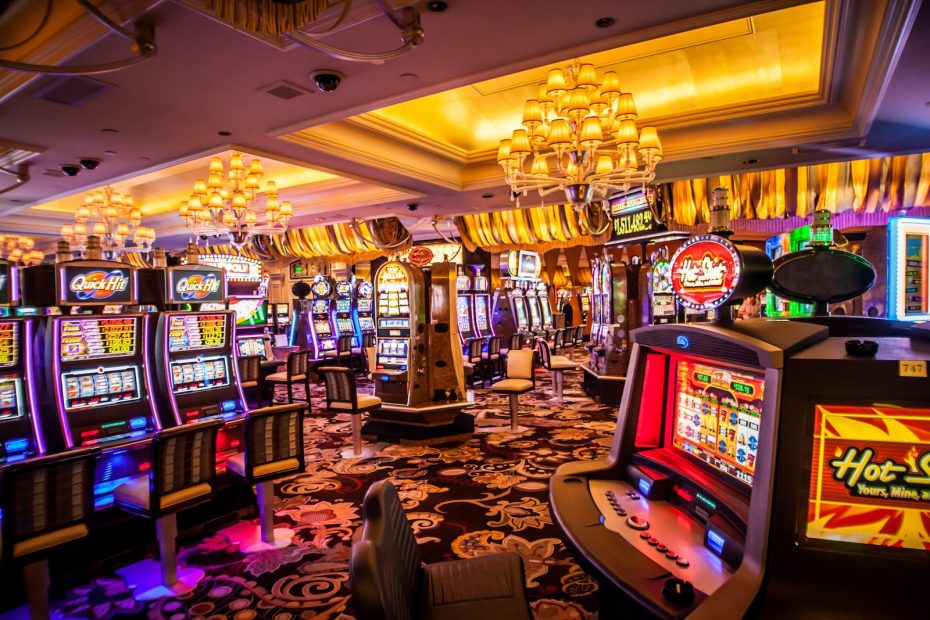
Casino games have long been an integral part of human culture, providing not just entertainment but a fascinating reflection of our dreams, ambitions, and fears. From the spinning reels of a slot machine to the strategic gameplay of poker, these games embody a variety of human emotions and events. At their core, casino games are not just a chance to earn cash; they are a snapshot of life itself, where danger and gain intertwine and luck can change in an instant.
As players assemble around tables or sit in front of glowing machines, they participate in a ceremony that transcends mere betting. These games mirror our natural desires for social interaction, adventure, and the quest for chance. They also unveil deeper truths about human behavior, such as our relationship with chance and the excitement of risk. In exploring casino games, we uncover not only the nuances of play but also the complex weave of the human experience, showcasing our intertwining narratives of aspiration and reality.
The Mind Behind Gambling
Wagering is deeply rooted in human psychology, appealing to various feelings and desires. The excitement of risk-taking is a fundamental aspect that attracts participants, be it the thrill of spinning a roulette or the anticipation of drawing a winning card in a poker game. This adrenaline is frequently likened to other forms of excitement, as the unpredictability of outcomes elicits a unique psychological response. Gamblers often become entranced by the possibility of winning big, leading to an irresistible draw toward gambling games.
Another, an essential component of the psychology behind gambling is the concept of optimism and ambition. Participants often nourish fantasies of financial freedom and the opulent lifestyle that can accompany winning. This optimism fuels their ongoing participation in casino games, as it provides a sense of meaning and the belief that a transformative win could be just one wager away. The story of beating the odds and finding success resonates with many, strengthening their dedication to play and engage with these games.
Lastly, social aspects play a significant role in gambling psychology. Casino environments are designed to foster social interaction, where gamblers gather to share the experience of wins and losses. This communal aspect not only enhances enjoyment but also influences behavior, as individuals often mimic the actions of others around them. The collective approval found in shared excitement can enhance the emotional experience, making casino games a mirror of not just personal desires but also collective engagement within the gambling community.
## The Dual Nature of Risk and Reward
Casino games embody the delicate balance between danger and reward that resonates deeply with the human experience. https://58win.express/ The rush of placing a wager is often accompanied by a rush of adrenaline, as gamblers are confronted with the possibility of striking it rich, yet conscious of the risk to suffer losses. This twofold experience reflects a essential aspect of life: the choices we make often come with intrinsic risks, and the chase for gain can push us to make risky moves we might not typically consider. In this way, gambling activities echo real-world choices, enticing players to gamble not just their capital, but also their aspirations.
The allure of grand jackpots and payouts fuels a sense of optimism, inspiring players to envision a more promising future that could emerge from a lucky spin of the wheel or turn of a card. This optimism can drive individuals to engage in more daring actions, urging them to push their boundaries in search of economic benefit. However, just as in life, the consequences of these risks can lead to both triumph and failure. The narratives of both jackpot winners and those who have faced losses everything at the tables demonstrate the unpredictable nature of chance and its consequential repercussions on our existence.
Ultimately, the experience of engaging with casino games serves as a strong reminder of the human condition. Every session played is loaded with the tension of risk, as gamblers weigh the gains against the risks. This interaction not only highlights the excitement that comes with betting but also exposes the weaknesses that come with the urge for more. As we navigate the challenges of choice and results in both the gambling world and in life, we find that the pursuit of risk and reward shapes our identities and experiences in deep ways.
Society and Solitude in Gambling Environment
Gambling environment is a distinct combination of communal interaction and personal pursuit, reflecting the contrasts of human experience. Gamblers often come together around tables, experiencing in the thrill of the game, celebrating wins, and commiserating over losses. This social aspect is vital, as it establishes a sense of community and bonding among diverse groups of individuals. Regular visitors to gaming establishments may form friendships and develop routines, turning the gambling venue into a alternative home where they feel linked to a larger community of gamblers.
However, the appeal of gambling activities can also result to isolation. As players become immersed in the excitement of gambling, they may isolate from personal connections or neglect to engage with the environment outside the gaming space. For some, the pursuit of a jackpot can distract from genuine connections, leading to loneliness. The experience of being among others yet experiencing solitary is not uncommon, as the attention shifts from collective fun to the individual concerns of each player’s path.
This interaction of community and isolation creates a vivid tapestry that defines gaming culture. It showcases the complexity of social interactions, where happiness and sorrow coexist. Casinos serve as both a sanctuary for social engagement and a platform for individual challenges, illustrating how deeply entwined our desire for connection and the individual quest for wealth can be. In navigating this environment, gamblers confront their own stories—seeking both the thrill of the wager and the fellowship of fellow players, ultimately reflecting the wider spectrum of individual experience.
